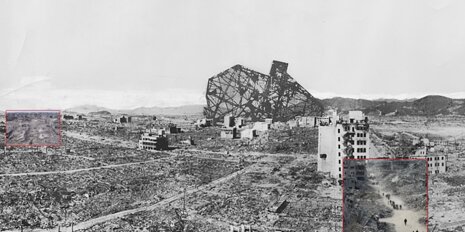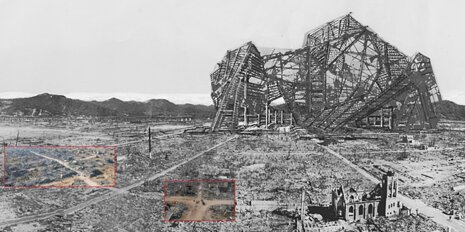postmaster@museumofanthropocenetechnology.org, via Leggiuno 32
Laveno Mombello
21014
Italia

The Japanese architect Arata Isozaki was 14 years old, in 1945, when Hiroshima and Nagasaki were completely destroyed by atomic bombs dropped by the US Army. He recalls: “It was silent. Time stopped. Moreover, it was the end of history. All explosion, dangers around and all that so clearly constituted the future disappeared”, and continues “If the image of those ruins burned so deeply in my eyes and if my memory was prohibiting me from excercising my imagination on the future, should I not simply embrace the idea and accept that the future will be composed of the same kind of ruins? " And indeed, similar ruins have been photographed 80 years later in Gaza, after relentless bombing by the Israelian Army. Even when these pictures were in colour, they are hardly distinguishable from the black and white ones in 1945.

Nr. 185 - HIROSHIMA 1945 GAZA 20251945 1968 2025, unknown, Arata Isozaki, unknown, MAT
Nr. 185 - HIROSHIMA 1945 GAZA 2025
1945 1968 2025, unknown, Arata Isozaki, unknown, MAT
2 times 40 x 80 cm, reworked copy of "Re-Ruined Hiroshima" by Arata Isozaki, including drawing and collage.
Original:
Re-Ruined Hiroshima, 1968, Arata Isozaki, 35,2 x 93,7 cm, Museum of Modern Art, New York
postmaster@museumofanthropocenetechnology.org, via Leggiuno 32
Laveno Mombello
21014
Italia